Mountain Dew Kickstart has 90 milligrams of caffeine, 80 calories, 20 milligrams of sugar, and 170 milligrams of sodium in a typical 16 fl. oz. can.
Mountain Dew Kickstart is an energy drink from PepsiCo that will help you start the day off right while retaining its famous citrus taste. It’s ideal for your morning sprint or a mid-afternoon energy boost.
Although the word Kickstart is self-explanatory, I’m sure a lot of you wonder about the nutritional value of this energy drink.
Keep reading until the end to learn all about Mountain Dew Kickstart’s Nutrition Facts along with other necessary information.
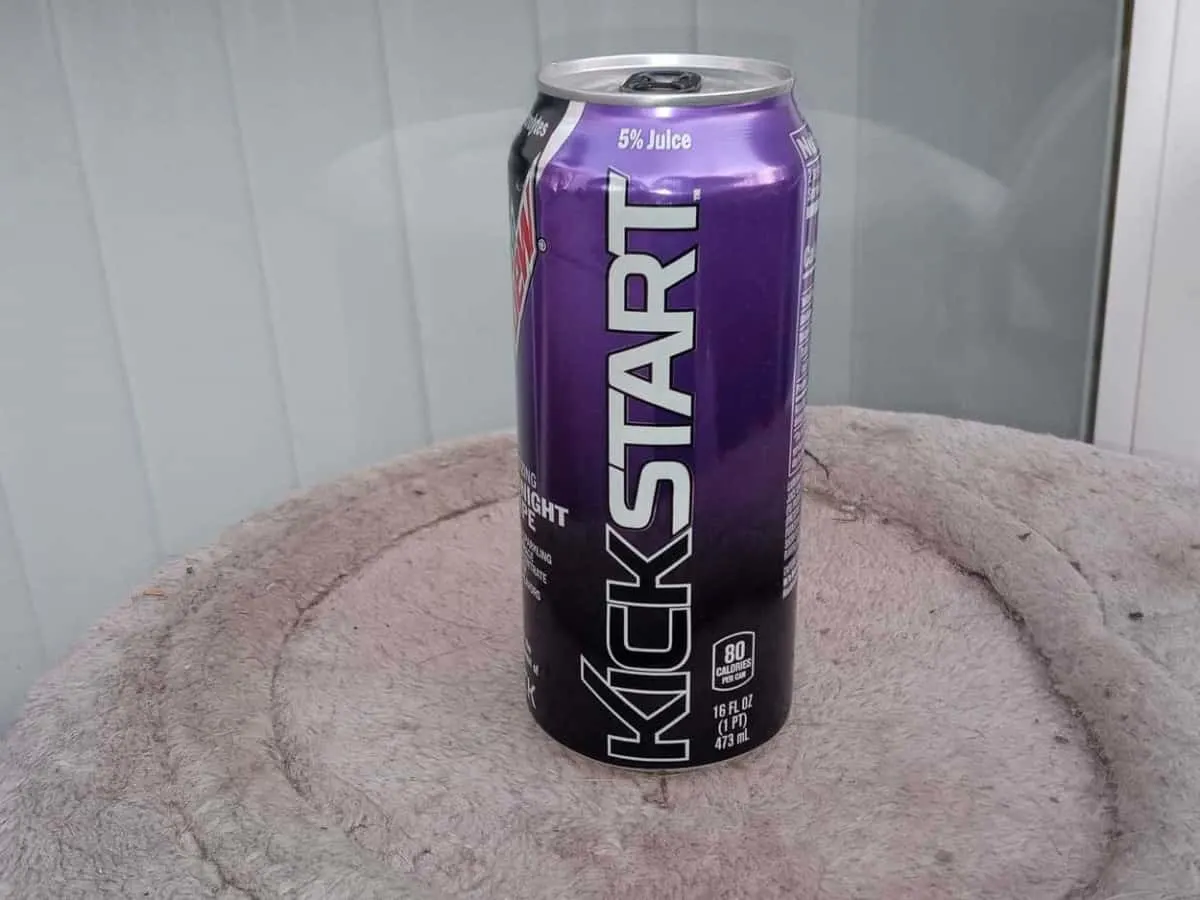
Page Contents
How healthy is Mountain Dew Kickstart?
Mountain Dew Kickstart is somewhat healthy. Mountain Dew Kickstart contains approximately typical amounts of calories, caffeine, and sugar. Consuming one of these once in a while won’t immediately ruin your health and force you to visit the nearest hospital emergency room.
If you don’t limit your use of Mountain Dew Kickstart, the calories and sugar in it will accumulate over time, putting your health at risk if you’re not the active kind and don’t eat well enough to counterbalance its effects.
Is kickstart really an energy drink?
Kickstart is not really an energy drink. In 2014, PepsiCo launched Kickstart on the market not as an energy drink but as a soft drink. There are a lot of people who believe that drinking Mountain Dew in the morning is a more healthy option, and they enjoy drinking it.
As a direct response to the enormous success of the product, they have just recently introduced two new flavors of Kickstart that are designed to be more alluring for consumption during the nighttime hours. These new flavors are intended to provide a boost of energy.
Ingredients in Mountain Dew Kickstart
Let’s see what exactly goes in a 16 fl. oz. Mountain Dew Kickstart can:
- Carbonated Water
- High fructose corn syrup
- White grape juice concentrate
- Citric acid
- Sodium polyphosphates (Preservative)
- Natural flavor
- Potassium sorbate (Preservative)
- Caffeine
- Potassium citrate
- Potassium chloride
- Gum Arabic
- Sucralose (Artificial Sweetener)
- Red 40 (Coloring)
- Calcium disodium EDTA
- Sucrose acetate isobutyrate
- Salt
- Blue 1 (Coloring)
Nutrition Facts Of Mountain Dew Kickstart
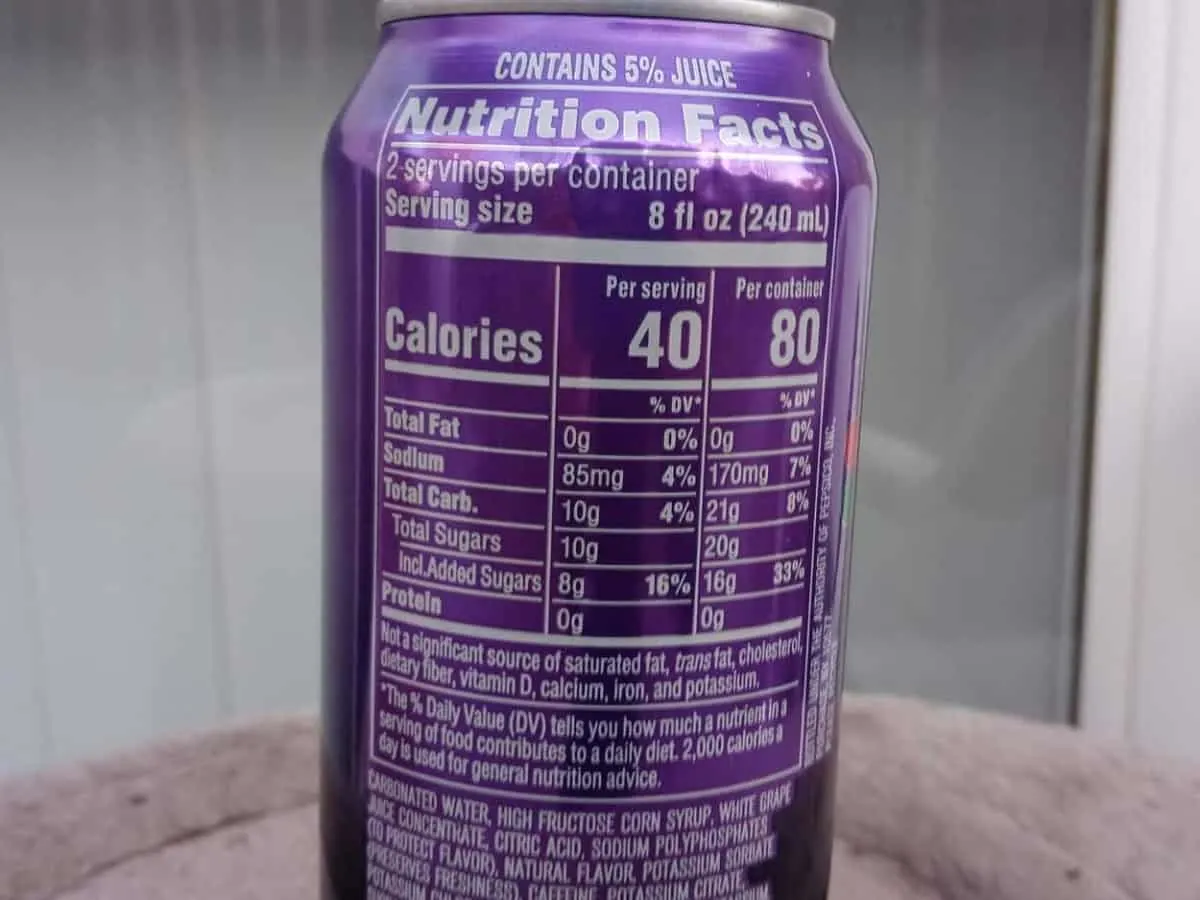
Here’s a quick rundown of the nutritional value of Mountain Dew Kickstart.
| Typical Value (Standard Serving) | Mountain Dew Kickstart (16 fl. oz.) |
| Energy | 80 calories |
| Protein | 0 g |
| Fat (Of which Saturated) | 0 g (0 g) |
| Carbohydrate (Of which Sugars) | 21 g (20 g) |
| Sodium | 170 mg |
| Caffeine | 90 mg |
For a deeper idea of how a 16 fl. oz. can of Mountain Dew Kickstart relates to other energy drinks in terms of nutritional benefit, I’ve added a table of comparison below:
| Daily Value (Standard Serving) | Mountain Dew Kickstart (16 fl. oz.) | Red Bull (8.4 fl. oz.) | Bang (16 fl. oz.) |
| Energy | 80 calories | 110 calories | 0 calories |
| Protein | 0 g | Less than 1 g | 0 g |
| Carbohydrate (Of which sugars) | 21 g (20 g) | 28 g (27 g) | 2 g (0 g) |
| Sodium | 170 mg | 105 mg | 10 mg |
| Caffeine | 90 mg | 80 mg | 200 mg |
Calorie Content of Mountain Dew Kickstart
Mountain Dew Kickstart has an average of 80 calories per 16 fl. oz. can.
If you live a healthy and balanced lifestyle, you shouldn’t have any trouble burning off those calories.
The daily caloric intake for women 2000 calories and 2500 calories for men, as a point of comparison.
So, while Mountain Dew Kickstart is unlikely to have a significant impact on your health, it’s always a good idea to keep track of what you eat.
Having said that, you should always have a well-balanced meal and not consider Kickstart or any other energy drink as a meal substitute.
Also, the average calorie content of Kickstart should not be taken lightly since it may easily contribute to overconsumption
Overconsumption of Kickstart in a single day can result in a high-calorie diet, which can lead to obesity, diabetes, and heart disease.
To avoid unnecessary calories, limit yourself to one can of Mountain Dew Kickstart a day.
Caffeine Content of Mountain Dew Kickstart
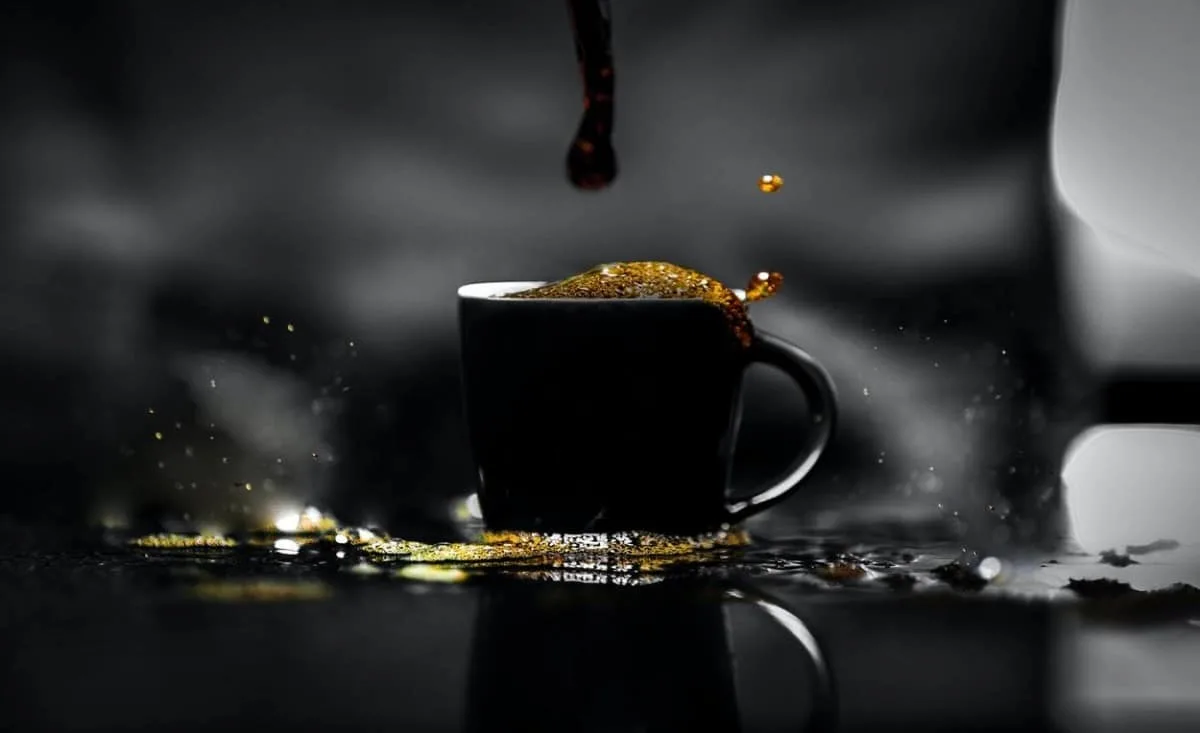
Mountain Dew Kickstart has 90 milligrams of caffeine in a 16 fl. oz. can, which is pretty reasonable for an energy drink of its size.
Caffeine in moderation has many advantages, including increased alertness, improved cognitive efficiency, and improved general physical performance.
Moreover, it is also important to remember that the FDA advises healthy adults to consume no more than 400 mg of caffeine a day.
Caffeine consumption in excess can cause significant health problems, including:
- increased heart rate
- high blood pressure
- heart palpitations
- insomnia
- dehydration
- restlessness
So, no matter what your caffeine tolerance is, it’s best to drink Mountain Dew Kickstart in moderation for your health’s sake.
How Much Sugar Does a Can of Mountain Dew Kickstart Contain?
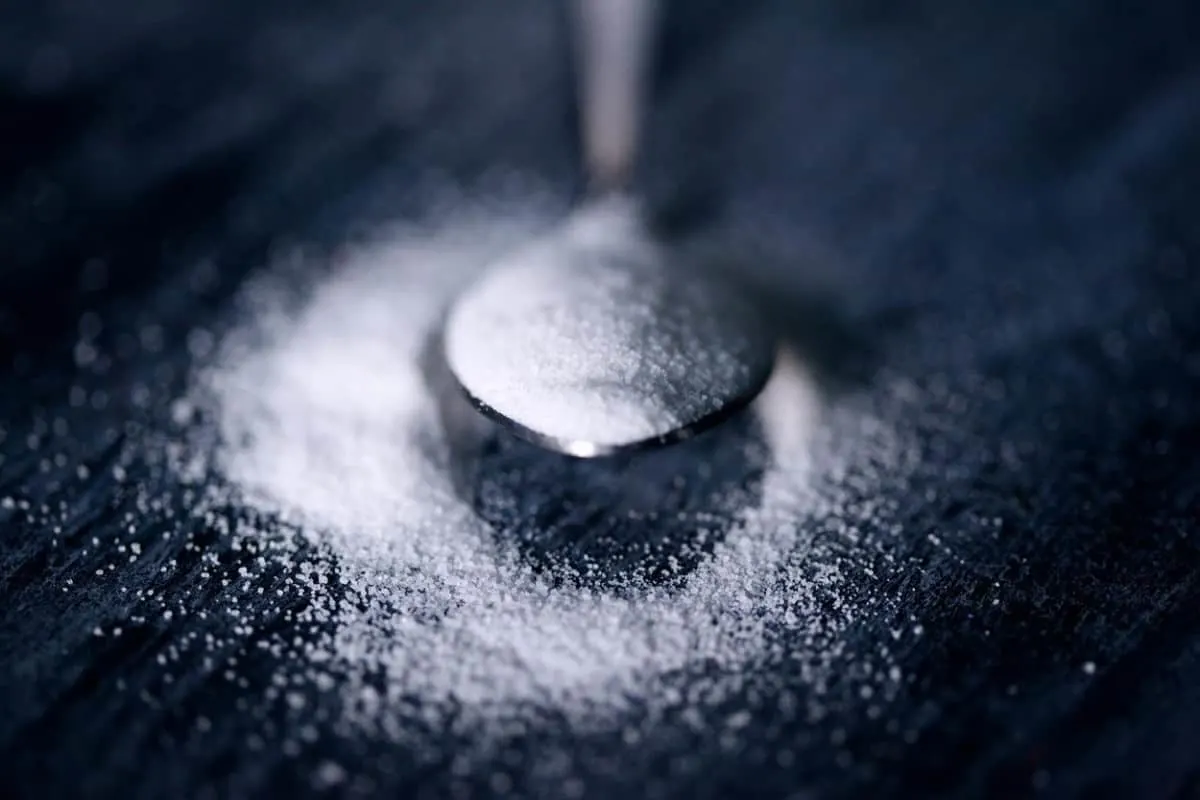
Mountain Dew Kickstart has a total of 20 grams sugar per 16 fl. oz. can, which is a small amount when compared to most sugary energy drinks on the market.
Mountain Dew Kickstart’s 20 g sugar content would fit right with your lifestyle, particularly if you’re trying to cut back on sugar.
Drinking a can of Kickstart, in my view, won’t have any negative effect on your health if you live an active lifestyle as it’s below the AHA‘s daily sugar intake guideline.
High sugar consumption can boost blood pressure and chronic inflammation, all of which contribute to heart disease.
However, much like caffeine, if you don’t keep your sugar consumption under control, you risk developing serious health issues like:
- tooth decay
- acne
- weight gain
- obesity
- cardiovascular diseases
- high blood pressure
- diabetes
Furthermore, if you drink multiple cans in just one sitting, you’re more likely to have a bad sugar crash, which will end up making you feel heavy and sluggish.
Overall, if you want to make Mountain Dew Kickstart your go-to energy drink, it’s better to keep your consumption moderate.
Check out the video if you want to learn more about the dangers of sugar use.
Artificial Sweeteners In Mountain Dew Kickstart
A 16 fl. oz. can of Mountain Dew Kickstart contains two kinds of artificial sweeteners: sucralose and acesulfame K. It also includes High-Fructose Corn Syrup (HFCS), a form of sweetener made from corn that is commonly used in soft drinks and packaged foods.
Sweeteners like sucralose and acesulfame potassium are FDA certified and have been shown to have zero calories and carbohydrates.
Although sweeteners have a lot of benefits, there’s still a lot we don’t know about them, including their potential side effects. According to this report, an excessive intake of artificial sweeteners may cause weight gain or loss, as well as diabetes.
According to the American Medical Association’s Council on Science and Public Health, HFCS can cause many adverse health issues, such as obesity and fatty liver disease.
Another research found that when HFCS is ingested in large quantities, it can induce metabolic dysregulation and altered dopamine signaling.
Therefore, I think the safest way to consume products containing artificial sweeteners like Mountain Dew Kickstart is to have them in moderation.
Is Mountain Dew Kickstart Bad for You?
Mountain Dew Kickstart isn’t bad for you at all if consumed in healthy amounts.
However, as someone who enjoys energy drinks, I believe Kickstart is better than most caffeinated and sugary beverages. And this does not, though, imply that you will drink it excessively.
Each 16 fl. oz can of Kickstart energy drink contains 20 grams of sugar, as well as artificial sweeteners like sucralose and acesulfame potassium.
Though 20 grams of sugar isn’t harmful, two cans will add up to 40 grams in a day. Personally, I believe it is an excessive quantity to consume because it can cause sugar crash and many side effects.
In my opinion, Mountain Dew Kickstart should be consumed in moderation, along with a healthy diet and an active lifestyle. This way you’ll get a great energy boost while still keeping your fitness under control.
How Many Mountain Dew Kickstarts Can I Drink in a Day?
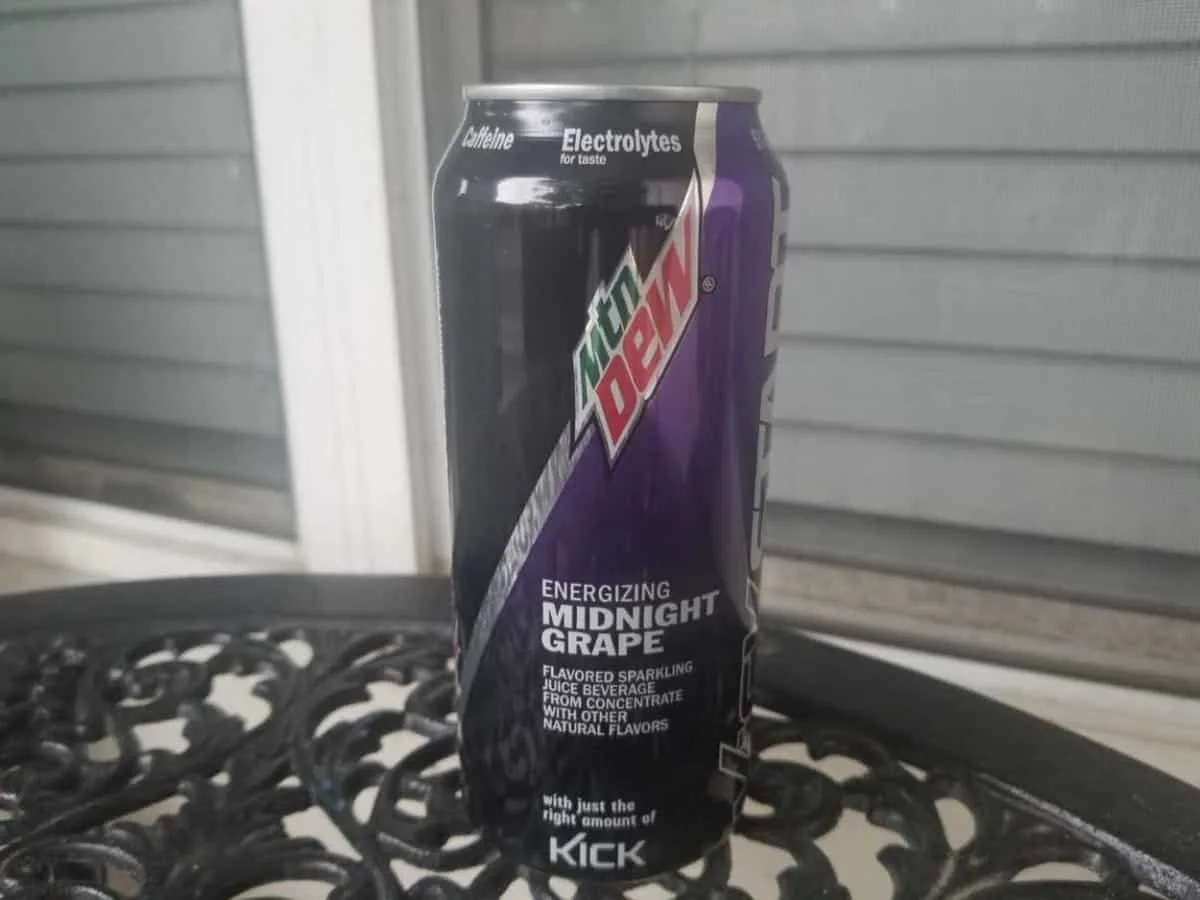
I recommend drinking only one can of Mountain Dew Kickstart a day.
It’s a safe choice for an energy drink because it contains only the right amount of caffeine to give you a lift without causing any unwanted side effects.
While 20 grams of sugar isn’t a lot, two cans of Mountain Dew Kickstart in a day equals 40 grams which is an excessive amount to consume. And, as we all know, too much sugar causes a blood sugar surge followed by a crash, something none of us like.
Therefore, I’d highly advise you to limit yourself to one can of Mountain Dew Kickstart per day to prevent jeopardizing your health and overall well-being.
If you want a detailed overview of this topic, check out this article I’ve written.
Is MTN Dew Kickstart healthy?
MTN Dew Kickstart is a flavored energy drink produced by PepsiCo. While it contains slightly fewer calories and less sugar than regular Mountain Dew, it still falls under the category of sugary, caffeinated beverages and may not be considered a healthy choice.
MTN Dew Kickstart contains artificial sweeteners, high fructose corn syrup, and caffeine. Regular consumption of sugary drinks has been linked to various health issues, including weight gain, increased risk of type 2 diabetes, and dental problems.
Is Mountain Dew the healthiest soda?
Mountain Dew is not considered a healthy soda choice due to its high calorie and sugar content. It can contribute to weight gain, tooth decay, and increased risk of chronic conditions like obesity and diabetes.
Choosing water or healthier alternatives is generally recommended for promoting overall health.
Flavors Of Mountain Dew Kickstart
Mountain Dew Kickstart Energy Drinks are mostly made of actual fruit juice, giving them a pulpy, carbonated flavor. Take a look at the shortlist of flavors that are available for this energy drink:
- Original Dew
- Orange Citrus
- Black Cherry
- Midnight Grape
- Fruit Punch
- Mango Lime
- Pineapple Orange Mango
- Blueberry Pomegranate
- Raspberry Citrus
Final Verdict
Mountain Dew Kickstart is just the right energy drink with 90 mg of caffeine to help you get through the day.
Furthermore, Mountain Dew Kickstart has a considerably smaller level of sugar in comparison to other energy drink brands, which makes it a healthier option.
But I’d still advise you to keep track of your daily intake of sugar and caffeine just to be on the safer side.
Overall, Mountain Dew Kickstart is clearly superior to the typical sugary energy drinks on the market if drunk in a healthy dosage.
So what are you waiting for? Give it a shot. And who knows, it might end up becoming your go-to drink!
